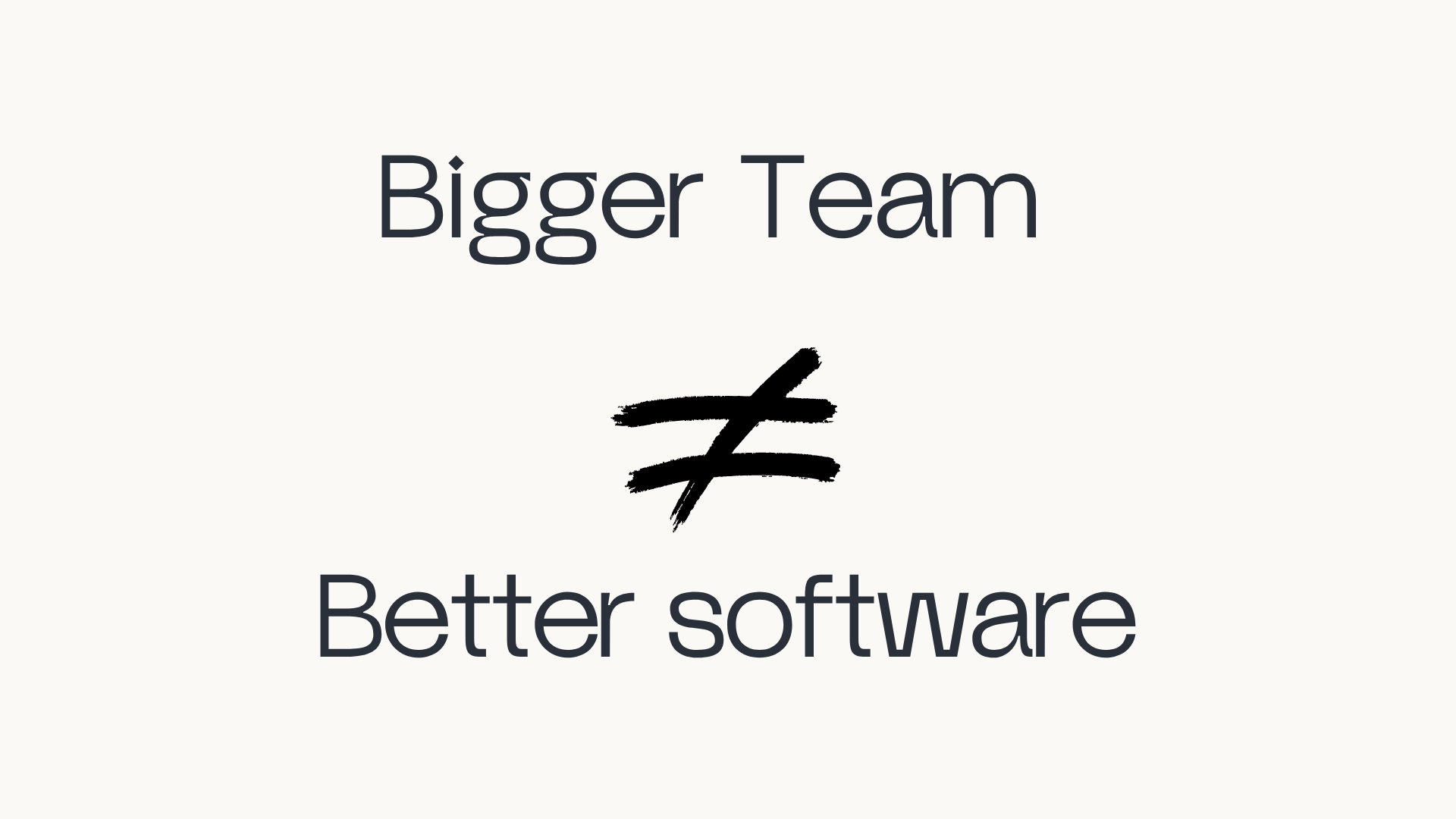Why “Bigger Teams” Don’t Always Deliver Better Software

In business, it’s easy to assume that more hands on deck means better results. After all, if you hire a big agency with a team of designers, developers, testers, and project managers, surely the work will be faster and higher quality, right?
Not always. In fact, when it comes to software and web projects, a bigger team can sometimes mean slower progress, higher costs, and more headaches.
Here’s why.
1. More People = More Communication Gaps
In large teams, information passes through multiple layers before reaching the right person. This creates:
- Misunderstandings between what the client wants and what actually gets built.
- Delays from waiting for approvals, status updates, and sign-offs.
- Lost context as requirements get diluted over multiple handovers.
When you work with a single point of contact like at Inori Technologies you speak directly to the person building your project. Nothing gets “lost in translation.”
2. Decision-Making Slows Down
Big teams often involve multiple stakeholders who each have their own opinions. This leads to:
- Endless meetings just to make small decisions.
- Scope creep when too many people add their own “must-have” features.
- Delays in implementation because no one is empowered to act quickly.
Smaller teams (or solo operations) can adapt in real-time - deciding and acting in the same conversation.
3. Overhead Costs Eat Into Your Budget
When you hire a large agency, your money pays not only for the actual work but also for:
- Project managers
- Account managers
- Admin staff
- Office rent and overhead
The more people involved, the higher the hourly rate - and sometimes the less actual work you get for your money.
With a lean setup, your investment goes directly into hands-on development, design, and delivery.
4. Accountability Gets Blurry
When many people work on the same project, it’s easy for accountability to get lost:
“I thought they were handling that.”
“That’s not my part of the project.”
With a single expert or a very small team, you always know who’s responsible - and they know it too. At Inori Technologies, there’s no finger-pointing: I own the entire project from start to finish.
5. Agility Wins in Today’s Market
Markets move fast. Technology moves even faster. A smaller, more focused setup means:
- Faster pivoting when requirements change.
- Quick experimentation with new tools and tech.
- Immediate feedback loops between you and the developer.
While big teams can be powerful for massive enterprise-scale projects, smaller setups often outperform them when speed, adaptability, and cost-efficiency matter most.
Final Thoughts
Bigger isn’t always better. When you need quality software delivered quickly, without bureaucracy, a smaller, agile setup can give you a competitive edge.
At Inori Technologies, I bring the expertise of a full IT department: development, testing, consultation, and support, without the overhead or delays of a big agency.
If you’re ready for a project that’s clear, fast, and effective, let’s talk.
